Celebrating innovation, rewarding curiosity and developing potential
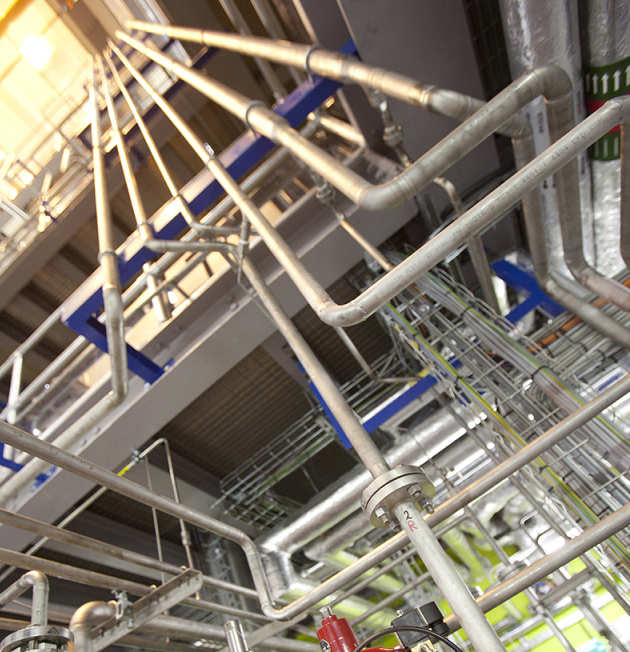 The ChemEng facility allows students and industry professionals alike to benefit from an unparalleled hands-on educational experience, with the four-storey-high state-of-the-art carbon capture pilot plant representing a scaled-down chemical engineering plant, situated in the very heart of the Capital.
The ChemEng facility allows students and industry professionals alike to benefit from an unparalleled hands-on educational experience, with the four-storey-high state-of-the-art carbon capture pilot plant representing a scaled-down chemical engineering plant, situated in the very heart of the Capital.
The centrepiece of our facility is the show-stopping ABB control room, accompanied by the installation of several brand new laboratories kitted out with the latest chemical engineering teaching equipment.
Our key facilities
Tomorrow’s technology for today’s students
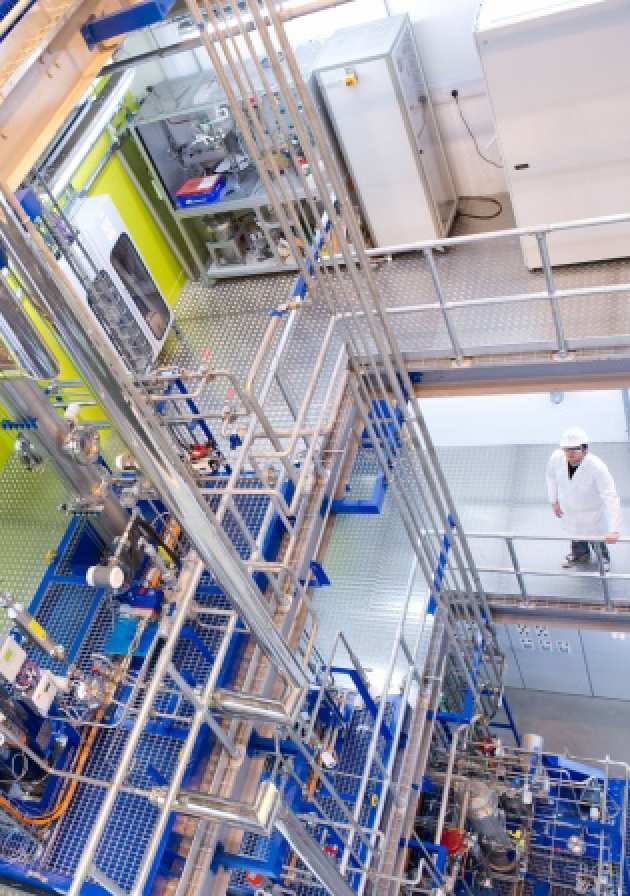 Stretching over four floors, the carbon capture pilot plant is at the centre of the Chemical Engineering Department, providing a fully hands-on discovery experience for students and researchers alike.
Stretching over four floors, the carbon capture pilot plant is at the centre of the Chemical Engineering Department, providing a fully hands-on discovery experience for students and researchers alike.
Built to the highest industrial standards, our plant is a core part of the training we provide to all our young chemical engineers. It typifies many of the features that graduates will encounter in the ‘real world’, and gives them skills that will be essential in their future careers.
Our futuristic carbon capture pilot plant is also a vital resource in the fight against climate change, demonstrating best practice in capturing and storing harmful carbon dioxide (CO2) before it can be released into the atmosphere.
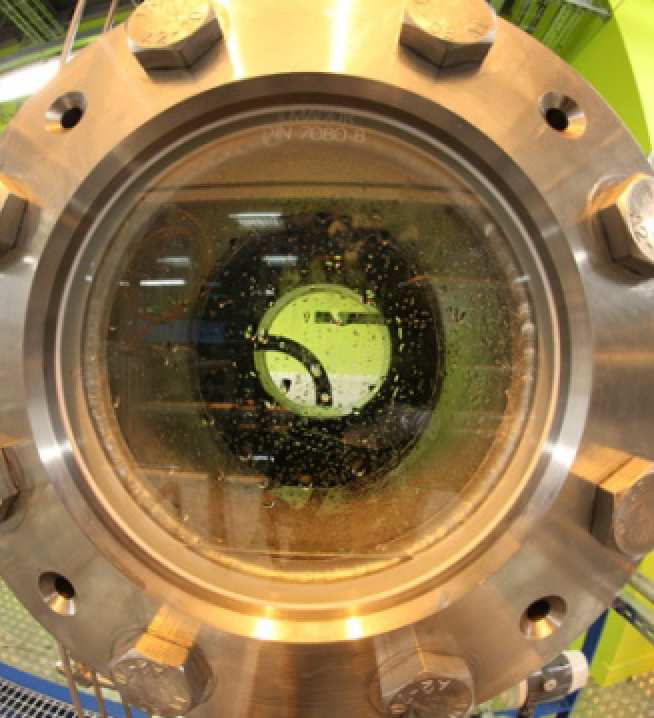
We actively encourage leading industrial organisations to use our facility for research purposes, with the hope that one day the technology will be adopted on a much larger scale at power stations across the world, capturing CO2 emissions before they harm the planet.
Our vision is backed by the UK Government, who announced a £1 billion competition in April 2012 to encourage companies to develop carbon capture technology on a commercial scale between 2016 and 2020.
The Beating Heart of the Department
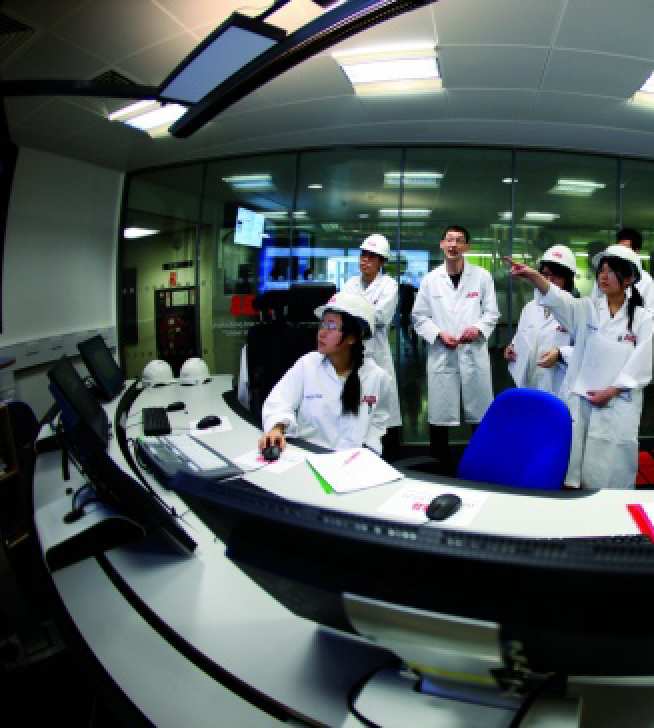
The show-stopping ABB control room is the nerve centre of the carbon capture pilot plant, giving students the opportunity to gain hands-on knowledge that will be crucial in their future careers.
Created as part of a new ten year strategic alliance with ABB, the state-of-the-art facility gives undergraduates the chance to control our industrial-standard Pilot Plant, learning key skills such as how to start up the facility, shut it down as well as operate it safely and efficiently. As a result of this training, our students graduate from university with an unrivalled expertise, making them more employable in an increasingly competitive sector.
Tomorrow's technology...today
Advanced technology plays an important role in the ABB control room, and over two hundred ABB industrial instruments are installed in the pilot plant so that students can measure process critical variables such as pressure, temperature, flow rate, pH, liquid level, pump speed and motor speeds.
Several web cams are installed around the facility, with the feeds from these displayed on screens in the ABB control room alongside the main graphical process interface.
Students are encouraged to use Apple iPads® in the Pilot Plant, and with each device linked to the central console screens, they can refer to the plant’s schematics at the touch of a screen, as well as remotely control or monitor its operation in real time.
First-class facilities at a world-class university
We have completely revamped all of our teaching laboratories, increasing efficiency by combining them into the ChemEng Discovery Space and significantly improving access for people with disabilities.
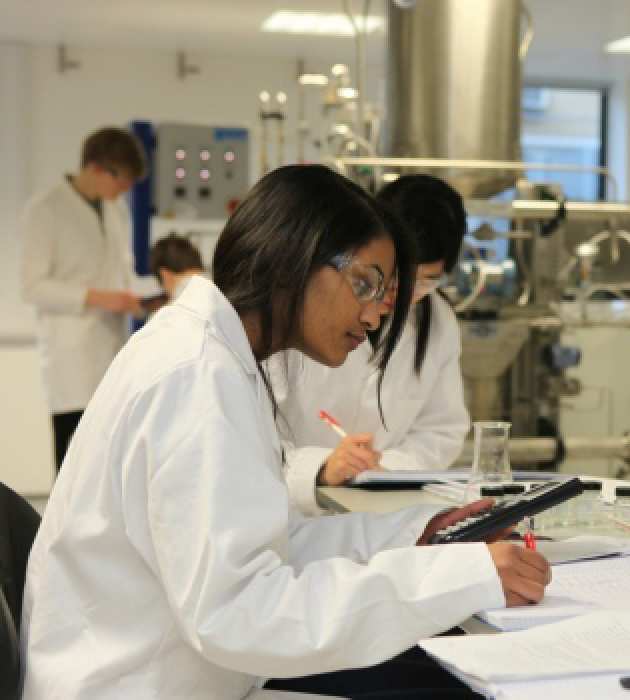 In addition, we have created an entire new floor of laboratories, delivering more than 275 sq mt of new departmental space in the process. A new analytical laboratory and suite of staff offices have been created here, allowing for further teaching and research opportunities.
In addition, we have created an entire new floor of laboratories, delivering more than 275 sq mt of new departmental space in the process. A new analytical laboratory and suite of staff offices have been created here, allowing for further teaching and research opportunities.
Our undergraduate laboratories have seen a radical overhaul, with each now comfortably holding up to 50 students. Safety has been vastly improved, with better ventilation and the installation of auto-closing sash fume cupboards. Many of these are low velocity units, providing excellent energy efficiency.
As part of the refurbishment we have entirely re-designed our laboratory based undergraduate teaching curriculum. This work has been supervised by our new team of Teaching Fellows, who are our lead learners. 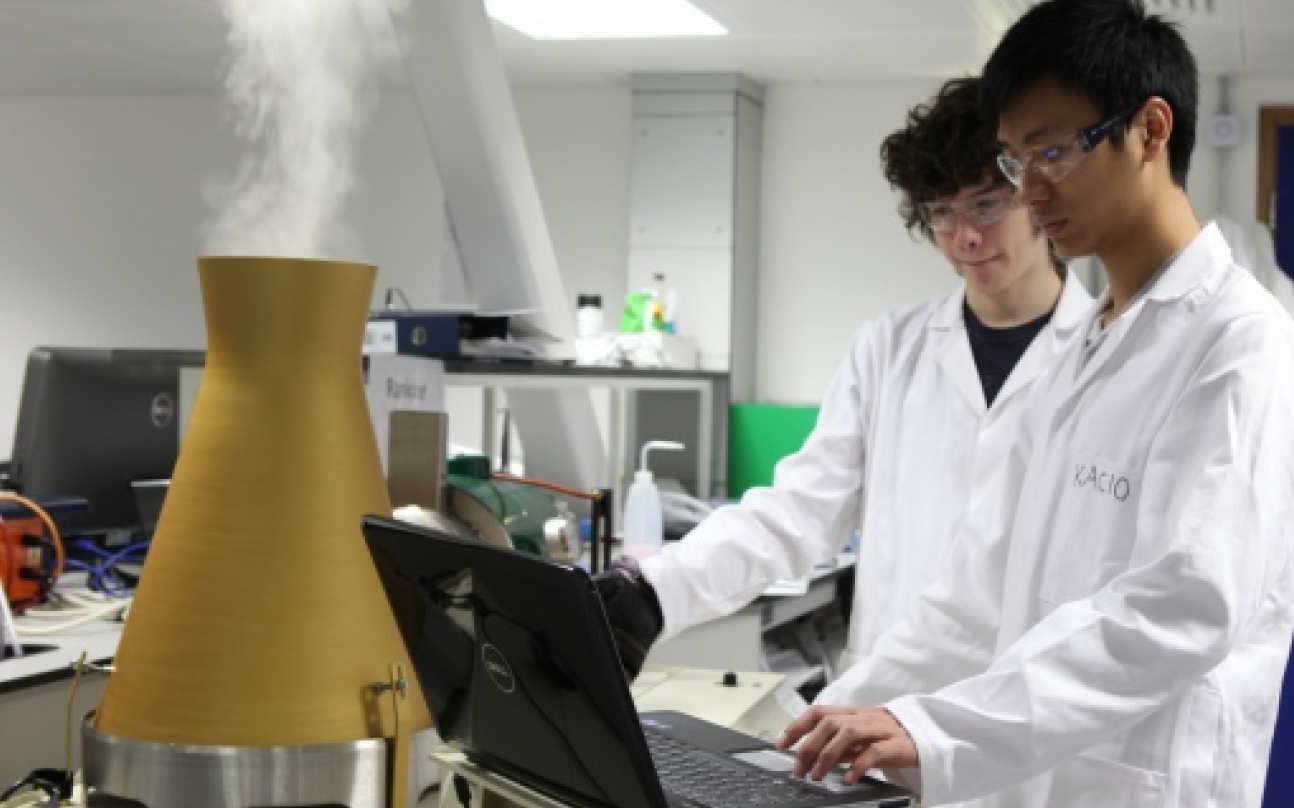
This project has enabled the creation of a number of new high specification research laboratories designed to underpin and advance our world-class research activities. These laboratories include a new energy research facility financially supported by the Wolfson Foundation and the Royal Society.
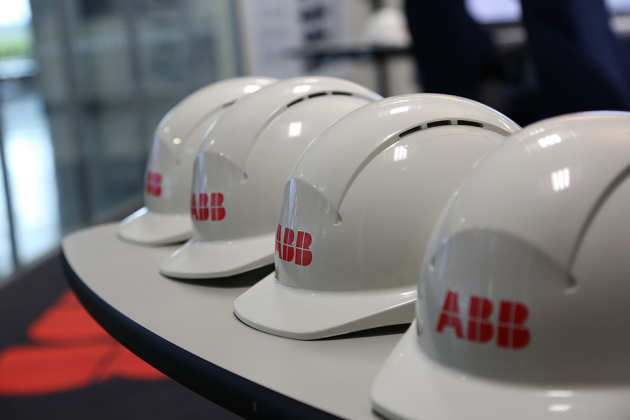 If you are in industry and have heard about what’s going on in our Discovery Space or have been excited by what you have read so far then this will be of great interest to you ... our new state-of-the-art facilities are also now available to industry for staff training and commercial/industrial research.
If you are in industry and have heard about what’s going on in our Discovery Space or have been excited by what you have read so far then this will be of great interest to you ... our new state-of-the-art facilities are also now available to industry for staff training and commercial/industrial research.
The stunning 12 metre high carbon capture pilot plant, together with its superbly equipped ABB control room, represents the cutting edge of technology in process engineering education and research today. We have developed an industry-focused training course using our pilot plant, consisting of 10 sessions that will fit in with your business needs – your staff can learn with us in a series of taught 3.5 hour sessions delivered over one or two weeks – whichever suits your business best.
Or you may desire to have a course created especially for your organisation. We can tailor our course to precisely meet your business needs. Is your organisation involved in process automation, instrumentation and control systems? Specific to these subject areas we are now offering a new MSc in Process Automation, Instrumentation and Control, developed with industrial people in mind. This course can be taken as a part-time or one year full-time course or as 16 continuous personal development (CPD) modules that can be taken on an ad hoc basis.
The best way to improve safety in process plants and laboratories is through better process safety education. Here with our new pilot plant we can offer a facility which offers a real-world training environment without any of the complexities of training staff in an operational facility. Should you desire to use our pilot plant purely for research then we have skilled staff to assist you with the plant and process facilities and can talk with you about the research possibilities.
If you would like to know more or discuss how your organisation can gain from our training or research facilities here at Imperial please contact us at chemengdiscovery@imperial.ac.uk and we will be delighted to engage with you.
Media
1.) Dr Daryl WIlliams explains more about the Carbon Capture Pilot Plant
2.) Robert Llewellyn, star of Red Dwarf and Scrapheap Challenge, visits Imperial College to find out more about how energy will be sourced in the future. He talks to Dr Daryl WIlliams about the Carbon Capture Pilot Plant (credit: BT)
3.) Energy Live News cover the opening of the Carbon Capture Pilot Plant
KP7Wdg
4.) An overview of the ChemEng Discovery Space (credit: ABB)
an overview of the chemeng discovery space/
5.) Dr Daryl Williams speaks to ABC radio about the Carbon Capture Pilot Plant (credit: ABC)


